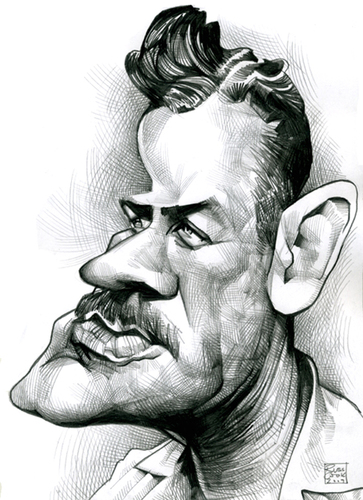Today is the 303rd anniversary of the birth of that quintessential 18th-century curmudgeon Dr. Samuel Johnson, the literary lion of Georgian London for much of his lifetime (1709-1784). A poet, critic, lexicographer, and wit, Johnson compiled the first respectable English dictionary between 1747 and 1755, following several years of writing critical articles for London magazines such as The Idler.
He was the master of the insult:
I took to Poll very well at first, but she won't do upon closer examination... Poll is a stupid slut. I had some hopes for her at first, but when I talked to her tightly and closely, I could make nothing of her. She was wiggle waggle: and I could never persuade her to be categorical.
...she was as bad as negative badness could be, and stood in the way of what was good; that insipid beauty would not go a great way... and such a woman might be cut out of a cabbage, if there was a skilful artificer.
The fellow's an idiot; he is as awkward as a turn-spit when first put to the wheel, and as sleepy as a dormouse.
Why, Sir, Sherry is dull, naturally dull; but it must have taken him a great deal of pains to become what we now see him. Such an excess of stupidity, Sir, is not in nature.





_hires.jpg/220px-CassandraAusten-JaneAusten(c.1810)_hires.jpg)


